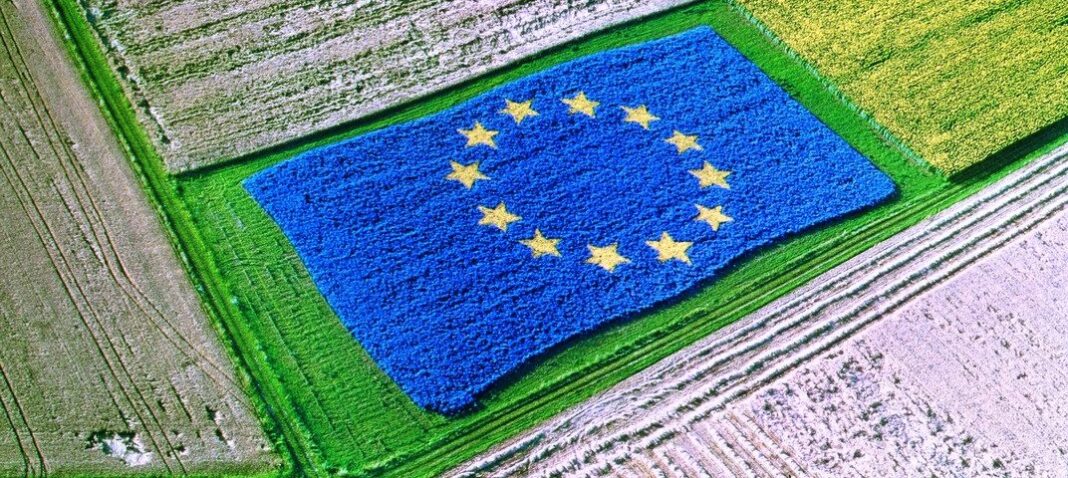The EU’s new strategic agenda for 2019-2024 focuses on protecting citizens and freedoms; developing a strong and vibrant economic base; building a climate neutral, green, fair and social Europe; and promoting European interests and values on the global stage.
However, it is evident from the reports disclosed by NGOs, independent experts, researchers, the European Commission and the European Parliament that the structural funds are systematically and continuously being misused in direct breach of the rule of law and principles of good governance. For more than a decade independent observers, experts and NGOs have reported on corruption, misuse and the fraudulent use of European structural funds; in particular the agricultural and regional development funds.
Leaders of political parties represented in the European parliament tabled fresh proposals to reform the Common Agricultural Policy (CAP), with the aim to strengthen the provisions of the Green Deal and prevent further misuse of EU funds by oligarchs and groups often alleged to be involved in money laundering, corruption and fraud. The CAP provisions from 2021 to 2027 would provide the European member states with a budget of twenty-eight billion euros, apparently without sufficient safeguards to monitor the spending and sanction the misuse of these funds. If this were to happen, the European Commission, under the leadership of Vice President Frans Timmermans, would concede a serious set-back in its ambitious goals defined in the Green Deal and the Paris Climate Agreement, namely to achieve carbon neutrality, protect biodiversity and forests and lead the way to create new sources of renewable energy.
Members of the European Parliament, Greens/EFA recently launched a report called “Where does the EU money go?”, which describes the misuse of European agricultural funds in Central and Eastern Europe. It was launched in order to bring more transparency into the process of negotiating the reform of the Common Agricultural Policy for the years 2021-27. This report highlights the systemic weakness of the European Commission’s management of agricultural funds.
Viola von Cramon MEP, Greens/EFA member of the Budgetary Control Committee, comments: “The evidence shows that EU agricultural funds are fuelling fraud, corruption and the rise of rich businessmen. Despite numerous investigations, scandals and protests, the Commission seems to be turning a blind eye to the rampant abuse of taxpayer’s money and member states are doing little to address systematic issues. The Common Agricultural Policy simply isn’t working. It provides the wrong incentives for how land is used, which damages the environment and harms local communities. The massive accumulation of land at the expense of the common good is not a sustainable model and it certainly shouldn’t be financed from the EU’s budget.
We cannot continue to allow a situation where EU funds are causing such harm in so many countries. The Commission needs to act, it cannot bury its head in the sand. We need transparency on how and where EU money ends up, the disclosure of the ultimate owners of large agricultural companies and an end to conflicts of interest. The CAP must be reformed just so it works for people and the planet and is ultimately accountable to EU citizens. In the negotiations around the new CAP, the Parliament team must stand firm behind mandatory capping and transparency.”
Mikuláš Peksa, Pirate Party MEP and Greens/EFA Member of the Budgetary Control Committee said: “We have seen in my own country how EU agricultural funds are enriching an entire class of people all the way up to the Prime Minister. There is a systemic lack of transparency in the CAP, both during and after the distribution process. National paying agencies in CEE fail to use clear and objective criteria when selecting beneficiaries and are not publishing all the relevant information on where the money goes. When some data is disclosed, it is often deleted after the mandatory period of two years, making it almost impossible to control.
Transparency, accountability and proper scrutiny are essential to building an agricultural system that works for all, instead of enriching a select few. Unfortunately, data on subsidy recipients are scattered over hundreds of registers, which are mostly not interoperable with the Commission’s fraud detection tools. Not only is it almost impossible for the Commission to identify corruption cases, but it is often unaware of who the final beneficiaries are and how much money they receive. In the ongoing negotiations for the new CAP period, we cannot allow the Member States to continue operating with this lack of transparency and EU oversight.”
The evidence shows that EU agricultural funds are fuelling fraud and corruption. Despite numerous investigations, scandals and protests, the Commission seems to be turning a blind eye to the rampant abuse of taxpayer’s money and member states are doing little to address systematic issues. The Common Agricultural Policy is quite simply in urgent need of revision. It provides damaging incentives for land administration harmful to the environment and local communities. The massive accumulation of land at the expense of the common good is not a sustainable model and it contravenes the provisions and principles set by the Green Deal.









